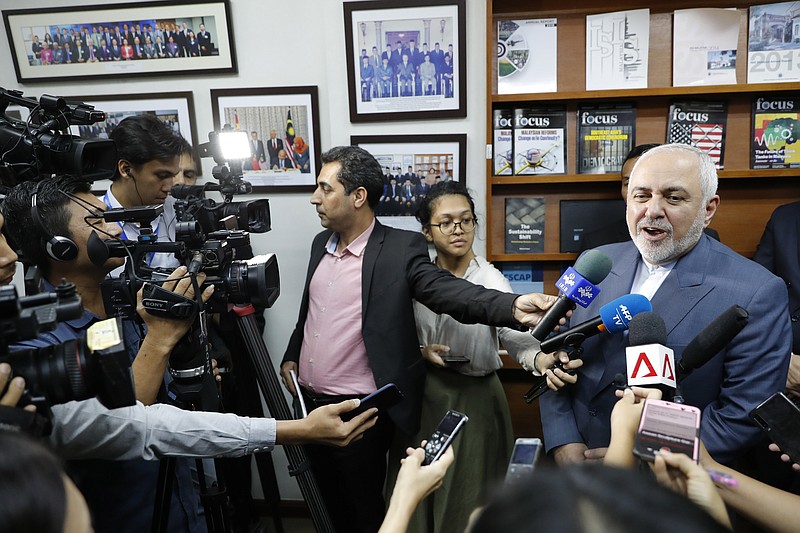Iran is not a nation that shares similar values with the United States and does not have the best interests of its neighbors at heart. For some reason, some people in this country still want to treat it as if the differences in the two countries were minimal and easily solvable.
Forty years ago this fall, on Nov. 4, 1979, a group of Iranian college students supporting the Iranian Revolution stormed the U.S. embassy in Tehran and took 52 American diplomats and citizens as hostages. An era of large-scale terrorism, from which the U.S. believed itself immune, had been born.
By the day the hostages were released, on Jan. 20, 1981, Iran was a different country, the Middle East was a more explosive region and the efficacy of diplomacy to diffuse tense, high-level disagreements among countries could no longer be counted upon.
Between then and now, the country has become the world's most prolific exporter of terrorism.
Today, many on the left are clamoring for the U.S. to return to a nuclear agreement like the one former President Barack Obama signed with Iran and five other countries in 2015.
When will they ever learn?
Not long after the Obama-era agreement was signed, Iran allegedly began violating two articles in it: Article II, which states nonnuclear-weapon states-parties shall not "manufacture or otherwise acquire nuclear weapons or other nuclear explosive devices" or "seek or receive any assistance in the manufacture of nuclear weapons or other nuclear explosive devices," and Article III, by not abiding by terms of the International Atomic Energy Agency safeguards "for the exclusive purpose of verification of the fulfillment of its obligations assumed under this Treaty with a view to preventing diversion of nuclear energy from peaceful uses to nuclear weapons or other nuclear explosive devices."
Subsequent 2018 revelations by Israel Prime Minister Benjamin Netanyahu also underlined ways in which Iran was not in compliance with the deal it signed.
President Donald Trump, who had campaigned that the deal was one-sided and never should have been made, said on May 6, 2018 the U.S. would withdraw from the agreement. The U.S. then returned to impose crushing sanctions on the country and said countries caught buying its oil also might receive sanctions.
However, the other countries involved said they had no intention of withdrawing from the agreement, in which Iran agreed to limit its nuclear activities in exchange for reduced sanctions.
Like a playground bully, though, the Middle East country now says it needs to change the rules since the U.S. has withdrawn from the deal and it has surpassed limits on nuclear enrichment set out in the agreement.
In other words, Iran says it will negotiate a new deal in which it agrees to stop enriching uranium at the level where it already has violated the agreement in exchange for the five countries buying oil from Iran and making sure the money reaches the country.
Who makes a deal like that? But that's what European powers are considering and is the type of agreement 2020 Democratic presidential candidates would love the U.S. to return to.
Even Trump, at the recent meeting of G7 leaders, seemed to be open to a meeting with the country.
But Iran's president, still not willing to admit his country is the bad actor, said no such meeting would occur unless the U.S. lifted all sanctions and would "bow your head [in respect] to the nation of Iran."
We don't see the U.S. agreeing to such ridiculousness and believe it would be better off keeping the crippling sanctions on the country. However, minus any preconditions, as with North Korea, we don't see downsides to simply meeting.
Should such meetings ever occur, our negotiators should understand something the Obama administration did not - that Iran needs a deal much worse than we do and that no agreement is needed just to say there is an agreement.
For now, Iran is still Iran. Nothing has happened in the last 40 years, including the previous administration's agreement, to change it. It continues to sow seeds of terror in the Middle East as its people starve. It continue to be a repressive regime. It continues to believe the U.S. is "The Great Satan."
We wish it were possible to view the country as we wish it could be, but history has taught us the fallacy of that notion.
